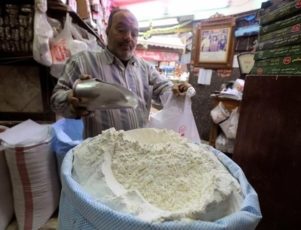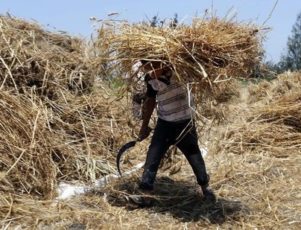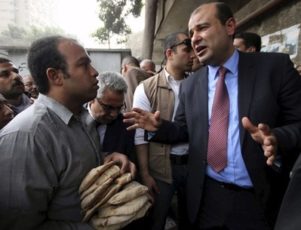CAIRO (Reuters) – Egypt, the world’s largest wheat buyer, will stop subsidising flour for its sweeping bread subsidy programme next month in a move expected to cut wheat imports by up to 10 percent by curtailing smuggling, the supply ministry said on Wednesday.
Egypt is looking to tighten its finances as it pushes ahead with a $12 billion three-year International Monetary Fund loan programme tied to ambitious reforms such as subsidy cuts and tax increases.
Austerity-hit Egyptians faced with inflation above 30 percent have increasingly turned to the state’s cheap subsidised bread to make ends meet, increasing the country’s food subsidy bill as well as its wheat imports. In the financial year to June 30 wheat imports reached 5.58 million tonnes, up from 4.4 million the preceding year.
In an attempt to reduce waste the state will next month stop subsidising flour used by bakeries offering the cheap bread. Instead, it will restrict subsidies to the actual bread offered to consumers, Supply Ministry spokesman Mohamed Sweed said.
Subsidy card holders currently obtain each loaf of bread for 0.05 pounds, less than a tenth of the cost of production, via an electronic smart card that allocates a maximum daily ration to citizens and compensates bakeries for the production cost shortfall with every swipe.
Unscrupulous bakers have long bought up cheap subsidised flour and sold it on the black market, costing the state millions of dollars a year in squandered subsidies.
Sweed said the new measure will remove the incentive for smugglng flour, cutting down on waste and helping to save the state up to 8 billion Egyptian pounds ($447 million) from its 2017-18 food subsidy bill, which had been set at 85 billion pounds.
He said that lower flour consumption would translate directly into reduced imports.
($1 = 17.9100 Egyptian pounds)
(Reporting by Eric Knecht; Editing by David Goodman)




